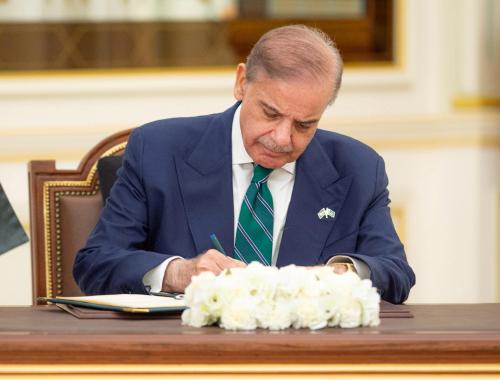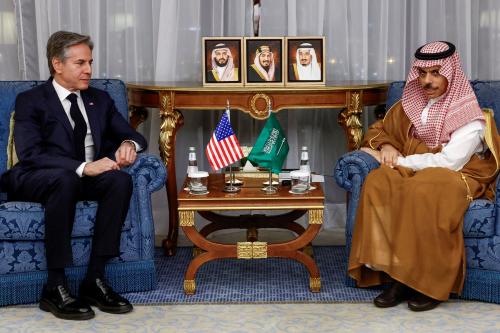On July 2, Brookings’s Center for Middle East Policy hosted United Nations Special Rapporteur on Extrajudicial, Summary, or Arbitrary Executions Agnes Callamard for a discussion of findings from her investigation into the murder of Saudi dissident Jamal Khashoggi. Callamard was joined by Senior Fellow Tamara Cofman Wittes and Nonresident Senior Fellow Ted Piccone.
In her opening remarks, Callamard emphasized that the murder of Jamal Khashoggi was a state act; it was conducted by state officials, using state means and resources. The investigation into the murder by the Saudi government, she said, provided further evidence of the state’s deep involvement in the ordering and execution of the murder. This conclusion was further bolstered, she said, by the fact that officials of the Saudi government cleaned the crime scene before giving access to local Turkish investigators. The Saudi government’s own investigation into the killing failed to meet international standards, Callamard said, as it was ineffective, lacked good faith, and did not allow for international cooperation. The prosecution of a number of Saudi officials for the murder in Saudi courts does not meet international standards for due process and transparency, she said, and also fails to hold accountable the high-level officials who ordered and oversaw the murder.
Following Callamard’s opening remarks, Wittes and Piccone joined her to discuss different forms of international accountability for the murder, and feasible next steps. Callamard emphasized that judicial accountability—the prosecution of individuals—is only one form of accountability the international community can wield in such cases. Callamard, Wittes, and Piccone noted that in other cases, states responsible have faced constraints on diplomatic activity, economic sanctions, and other measures. Callamard highlighted the Khashoggi murder’s importance to the future of the human rights agenda, because of the public interest it generated and because of its geopolitical context. Callamard called for additional action by the United States and other countries, arguing that the sanctions targeted on individuals involved in the murder are insufficient, as they fail to hold the Kingdom of Saudi Arabia accountable despite its clear responsibility under international law.
The Brookings Institution is committed to quality, independence, and impact.
We are supported by a diverse array of funders. In line with our values and policies, each Brookings publication represents the sole views of its author(s).




Commentary
Investigating the Khashoggi murder and promoting accountability
An expert discussion
July 9, 2019